Thousands converge on National Mall to mark the March on Washington’s 60th anniversary

Thousands converged Saturday on the National Mall for the 60th anniversary of Rev. Martin Luther King Jr.’s March on Washington, saying a country that remains riven by racial inequality has yet to fulfill his dream. “We have made progress, over the last 60 years, since Dr. King led the March on Washington,” said Alphonso David, president and CEO of the Global Black Economic Forum. “Have we reached the mountaintop? Not by a long shot.” The event was convened by the Kings’ Drum Major Institute and the Rev. Al Sharpton‘s National Action Network. A host of Black civil rights leaders and a multiracial, interfaith coalition of allies rallied attendees on the same spot where as many as 250,000 gathered in 1963 for what is still considered one of the greatest and most consequential racial justice and equality demonstrations in U.S. history. Inevitably, Saturday’s event was shot through with contrasts to the initial, historic demonstration. Speakers and banners talked about the importance of LGBTQ and Asian American rights. Many who addressed the crowd were women, after only one was given the microphone in 1963. Pamela Mays McDonald of Philadelphia attended the initial march as a child. “I was 8 years old at the original March, and only one woman was allowed to speak — she was from Arkansas where I’m from — now look at how many women are on the podium today,” she said. For some, the contrasts between the size of the original demonstration and the more modest turnout Saturday were bittersweet. “I often look back and look over to the reflection pool and the Washington Monument, and I see a quarter of a million people 60 years ago and just a trickling now,” said Marsha Dean Phelts of Amelia Island, Florida. “It was more fired up then. But the things we were asking for and needing, we still need them today.” As speakers delivered messages, they were overshadowed by the sounds of passenger planes taking off from Ronald Reagan National Airport. Rugby games were underway along the Mall in close proximity to the Lincoln Memorial while joggers and bikers went about their routines. Yolanda King, the 15-year-old granddaughter of the Rev. Martin Luther King, Jr., roused marchers with remarks delivered from the same spot her grandfather gave the “I Have A Dream” speech sixty years ago. “If I could speak to my grandfather today, I would say I’m sorry we still have to be here to rededicate ourselves to finishing your work and ultimately realizing your dream,” she said. “Today, racism is still with us. Poverty is still with us. And now, gun violence has come for places of worship, our schools, and our shopping centers.” From the podium, Sharpton promised more demonstrations to push back against injustices, new and old. “Sixty years ago, Martin Luther King talked about a dream. Sixty years later, we’re the dreamers. The problem is we’re facing the schemers,” Sharpton said. “The dreamers are fighting for voting rights. The schemers are changing voter regulations in states. The dreamers are standing up for women’s right to choose. The schemers are arguing whether they are going to make you stop at six weeks or 15 weeks.” After the speeches, the crowd marched to the Martin Luther King Jr. Memorial. Several leaders from groups organizing the march met Friday with Attorney General Merrick Garland and Assistant Attorney General Kristen Clarke of the civil rights division, to discuss a range of issues, including voting rights, policing and redlining. Saturday’s gathering was a precursor to the actual anniversary of the Aug. 28, 1963 March on Washington. President Joe Biden and Vice President Kamala Harris will observe the march anniversary on Monday by meeting with organizers of the 1963 gathering. All of King’s children have been invited to meet with Biden, White House officials said. Martin Luther King Jr.’s Washington remarks have resounded through decades of push and pull toward progress in civil and human rights. But dark moments followed his speech, too. Two weeks later, in 1963, four Black girls were killed in the 16th Street Baptist Church bombing in Birmingham, Alabama, followed by the kidnapping and murder of three civil rights workers in Neshoba County, Mississippi, the following year. The tragedies spurred passage of the Civil Rights Act of 1964. The voting rights marches from Montgomery to Selma, Alabama, in which marchers were brutally beaten while crossing the Edmund Pettus Bridge in what became known as “Bloody Sunday,” forced Congress to adopt the Voting Rights Act of 1965. Speakers warned that King’s unfinished dream was in danger of being further whittled away. “I’m very concerned about the direction our country is going in,” Martin Luther King III said. “And it is because instead of moving forward, it feels as if we’re moving back. The question is, what are we going to do?” Rosetta Manns-Baugh knew the answer: Keep fighting. “I think we have accomplished a lot, but I also think we lost.” said Manns-Baugh, who was a Trailways bus counter worker in 1963 when she left her seven children and husband at home in Virginia to come to D.C. Now she’s so disillusioned she’s stopped singing “We Shall Overcome,” the anthem of the civil rights movement. But even at age 92, she returned to Washington for the 60th anniversary, bringing three generations of her family, all the way down to her 18-month-old grandchild. “I think that’s why we all are here because we do expect the world to get better,” Manns-Baugh said. “We can’t stop working at it that’s for sure.” Republished with the permission of The Associated Press.
In Selma, Joe Biden says right to vote remains under assault
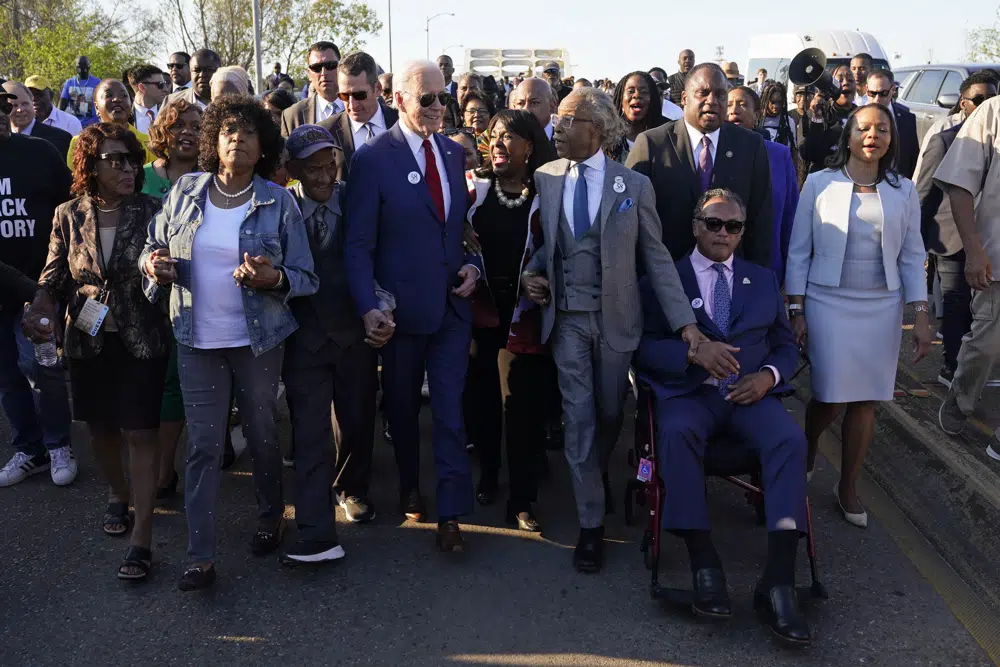
President Joe Biden used the searing memories of Selma’s “Bloody Sunday” to recommit to a cornerstone of democracy, lionizing a seminal moment from the civil rights movement at a time when he has been unable to push enhanced voting protections through Congress, and a conservative Supreme Court has undermined a landmark voting law. “Selma is a reckoning. The right to vote … to have your vote counted is the threshold of democracy and liberty. With it anything’s possible,” Biden told a crowd of several thousand people seated on one side of the historic Edmund Pettus Bridge, named for a reputed Ku Klux Klan leader. “This fundamental right remains under assault. The conservative Supreme Court has gutted the Voting Rights Act over the years. Since the 2020 election, a wave of states and dozens and dozens of anti-voting laws fueled by the ‘Big Lie’ and the election deniers now elected to office,” he said. As a candidate in 2020, Biden promised to pursue sweeping legislation to bolster protection of voting rights. Two years ago, his 2021 legislation, named after civil rights leader John Lewis, the late Georgia congressman, included provisions to restrict partisan gerrymandering of congressional districts, strike down hurdles to voting and bring transparency to a campaign finance system that allows wealthy donors to bankroll political causes anonymously. It passed the then-Democratic-controlled House, but it failed to draw the 60 votes needed to advance in a Senate under control by Biden’s party. With Republicans now running the House, passage of such legislation is highly unlikely. “We know we must get the votes in Congress,” Biden said, but there seems no viable path right now. The visit to Selma was a chance for Biden to speak directly to the current generation of civil rights activists. Many feel let down because of the lack of progress on voting rights, and they are eager to see his administration keep the issue in the spotlight. Few moments have had as lasting importance to the civil rights movement as what happened on March 7, 1965, in Selma and in the weeks that followed. Some 600 peaceful demonstrators led by Lewis and fellow activist Hosea Williams had gathered that day, just weeks after the fatal shooting of a young Black man, Jimmie Lee Jackson, by an Alabama trooper. Lewis and the others were brutally beaten by Alabama troopers and sheriff’s deputies as they tried to cross the Edmund Pettus Bridge at the start of what was supposed to be a 54-mile walk to the state Capitol in Montgomery as part of a larger effort to register Black voters in the South. “On this bridge, blood was given to help redeem the soul of America,” Biden said. The images of the police violence sparked outrage across the country. Days later, civil rights leader Martin Luther King Jr. led what became known as the “Turnaround Tuesday” march, in which marchers approached a wall of police at the bridge and prayed before turning back. President Lyndon B. Johnson introduced the Voting Rights Act of 1965 eight days after “Bloody Sunday,” calling Selma one of those rare moments in American history where “history and fate meet at a single time.” On March 21, King began a third march, under federal protection, that grew by thousands by the time they arrived at the state Capitol. Five months later, Johnson signed the bill into law. This year’s commemoration came as the historic city of roughly 18,000 was still digging out from the aftermath of a January EF-2 tornado that destroyed or damaged thousands of properties in and around Selma. The scars of that storm were still evident Sunday. Blocks from the stage where Biden spoke, houses sat crumbled or without roofs. Orange spray paint marked buildings beyond salvage with instructions to “tear down.” “We remain Selma strong,” Mayor James Perkins said, adding that “we will build back better.” He thanked Biden for approving a disaster declaration that helped the small city with the cost of debris cleanup and removal. ADVERTISEMENT Before Biden’s visit, the Rev. William Barber II, a co-chair of Poor People’s Campaign, and six other activists wrote Biden and members of Congress to express their frustration with the lack of progress on voting rights legislation. They urged Washington politicians visiting Selma not to sully the memories of Lewis and Williams and other civil rights activists with empty platitudes. “We’re saying to President Biden, let’s frame this to America as a moral issue, and let’s show how it effects everybody,” Barber said in an interview. Among those sharing the stage with Biden before the march across the bridge were Barber, the Rev. Jesse Jackson, Martin Luther King III, and the Rev. Al Sharpton. On the bridge crossing, marchers sang “This Little Light of Mine” and “We Shall Overcome,” and, following tradition, once they reached the point where Lewis and others were told in 1958 that they were on an unlawful march, they stopped and prayed. Water bottles were passed out to some who had gathered to hear Biden, and at least one person was taken away on a stretcher because of the upper-70s heat. Some had waited hours in the sun before relief came from shadows cast by nearby buildings. Delores Gresham, 65, a retired healthcare worker from Birmingham, arrived four hours early, grabbing a front-row spot so her grandchildren could hear the president and see the commemoration. “I want them to know what happened here,” she said. In his remarks, Biden said, “Everyone should know the truth of Selma.” And the president took a veiled dig at a high-profile Republican, Florida Gov. Ron DeSantis, when he said: “We should learn everything. The good, the bad, the truth, who we are as a nation.” DeSantis’ administration has blocked a new Advanced Placement course on African American studies from being taught in high schools, saying it violates state law and is historically inaccurate. Last year, he signed legislation that restricts certain race-based conversations and analysis in schools and businesses. More recently, his budget office called on state colleges to submit spending information on programs related to diversity, equity and inclusion, and critical
Joe Biden’s attorney general search is focused on Doug Jones, Merrick Garland

Alabama Sen. Doug Jones and federal appeals court judge Merrick Garland are emerging as the leading contenders to be nominated as President-elect Joe Biden’s attorney general, three people familiar with the matter told The Associated Press. A decision hasn’t been finalized and the dynamics could shift in the coming days as Biden builds out his Cabinet with an eye to ensuring diverse leadership in the top ranks of his administration. But Jones, who lost reelection last month, and Garland, whose Supreme Court nomination was snubbed by Republicans, appear increasingly well-positioned ahead of other rivals. Democrats are particularly concerned about the prospect of Biden nominating former Deputy Attorney General Sally Yates, fearing she could face a difficult confirmation in the Senate because of her role in issues related to the Russia investigation. Biden’s thinking was described by people with knowledge of the presidential transition’s internal thinking who were not authorized to speak publicly. Andrew Bates, a representative for the transition, did not comment for this story. The president-elect is facing pressure to ensure that Black and Latino leaders are prominently positioned in his administration. He selected retired Army Gen. Lloyd Austin this week to become the first Black secretary of defense. Jones, who is white, has had a long-standing personal relationship with Biden dating back to Biden’s first presidential campaign in 1988. The former U.S. attorney prosecuted members of the Ku Klux Klan who were responsible for a 1963 church bombing in Birmingham, Alabama, and later served as the U.S. attorney there from 1997 until 2001. Biden met with civil rights activists on Tuesday to discuss diversity in his Cabinet. The Rev. Al Sharpton, who attended the meeting, encouraged Biden to select a Black attorney general but gave him room to select someone of another race as long as they had a background in civil rights. “I said the least we could have is someone that has a proven civil rights background that’s someone that’s going to handle this heightened racist bigoted atmosphere,” Sharpton told reporters. It’s unclear whether Garland would fit that standard as easily. He is an experienced judge with a reputation for moderation who held senior positions at the Justice Department decades ago, including as a supervisor of the prosecution of the 1995 Oklahoma City bombing. Garland was put forward by President Barack Obama for a seat on the Supreme Court in 2016 following the death of Justice Antonin Scalia, but Republicans refused to hold hearings in the final year of Obama’s term. The vacancy was later filled by Justice Neil Gorsuch during the Trump administration. The incoming attorney general would inherit a Justice Department that has endured a tumultuous four years and would likely need to focus on not only civil rights issues and an overhaul of national policing policies after months of mass protests over the deaths of Black Americans at the hand of law enforcement, but also on concerns from Democrats about politicization of the department in the Trump administration. Biden has said he will not be involved in Justice Department investigative decisions even as some Democrats have openly wished for probes into President Donald Trump and his associates after he leaves office. Supporters of Yates view her nearly 30-year Justice Department career in both Democratic and Republican administrations, and experience ranging from civil rights cases to national security matters, as making her uniquely qualified to lead the department as it looks to move on from the Trump era. Still, Republican senators would be likely to focus a Yates confirmation hearing on her final year at the department, when the FBI closed out the Hillary Clinton email investigation and opened an investigation into whether the Trump campaign was coordinating with Russia, which later morphed into special counsel Robert Mueller’s investigation. Yates has repeatedly discussed both, including before the Senate committee that has oversight of the confirmation process. She has made clear that she disagreed with the way the FBI conducted some of the most heavily scrutinized actions of both investigations, including the decision to hold a press conference about the Clinton probe and then to alert Congress days before the election that it had been reopened. Even so, Republicans would nonetheless press Yates on problems with the Russia probe that were revealed by a Justice Department inspector general investigation, including errors and omissions in applications to surveil a former Trump campaign aide, and about how she would handle a special counsel inquiry focused on the FBI’s actions in that case. Yates has said that she would not have signed off on the surveillance had she known of the problems in the applications. But the appointment of John Durham as a special counsel to review the Russia probe suggests the inquiry is likely to endure into the Biden administration, creating a backward-looking focus for a new attorney general just as Yates would try to turn the page from the issue. Jones would not comment Tuesday on the possibility of a nomination as attorney general. “They have a process and we’ll let that process play,” he told reporters on Capitol Hill. The Biden team has also been considering a number of other potential candidates for the post, including former Justice Department official Lisa Monaco. Republished with the permission of the Associated Press.
Protesters gather in an attempt to drown out Donald Trump’s speech

One protester held up a sign, “Nightmare on Pennsylvania Avenue”
‘It’s broken’: Fears grow about strength of US voting system

Fears are mounting that several battleground states are not prepared to administer problem-free elections during the pandemic.
Donald Trump’s tweet about rioters echoes 1960s Miami police chief, AL Gov. George Wallace

The language has been attributed to segregationist presidential candidate George Wallace in a 1968 campaign speech in Pittsburgh.
Joe Biden warmly welcomed in Selma as Dems court black voters
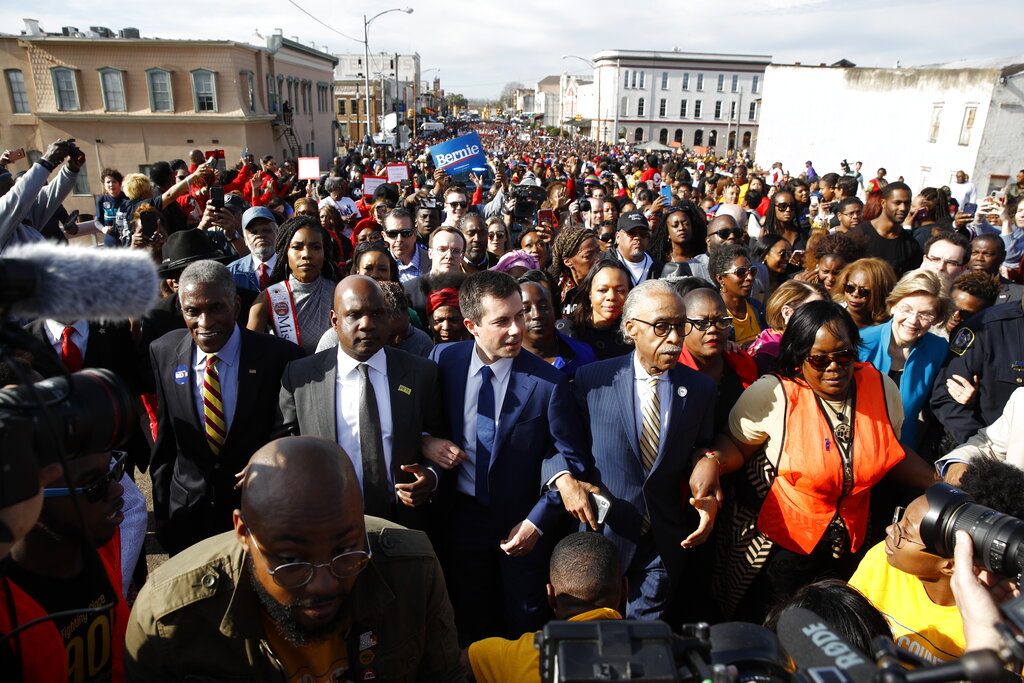
Joe Biden’s visit to Selma followed a strong victory in South Carolina.
Inside Mike Bloomberg’s big play for Alabama & other states
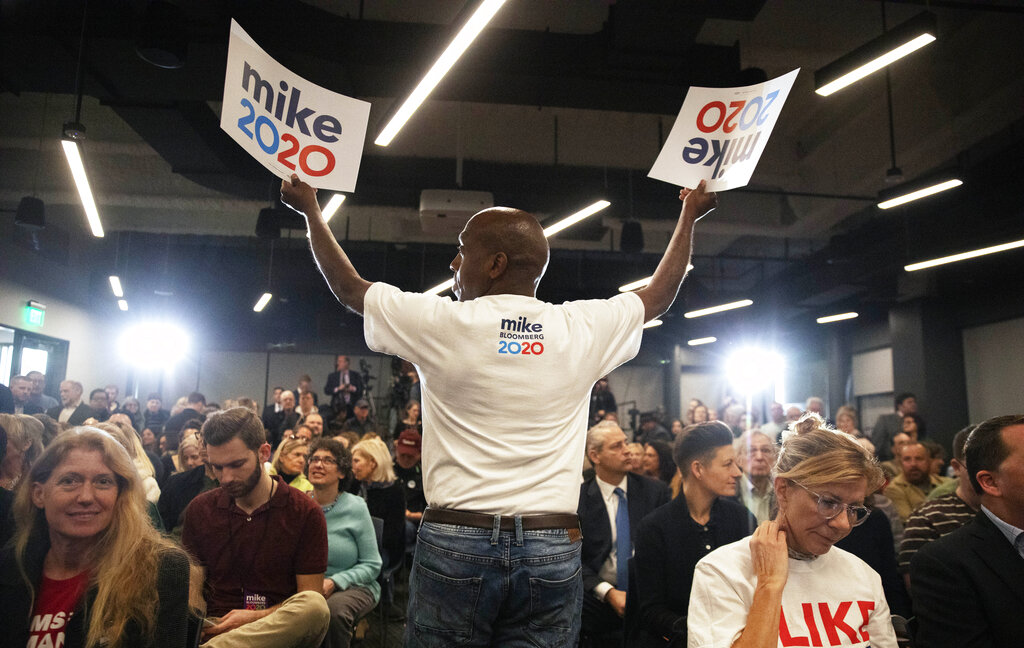
Bloomberg’s outreach aims squarely at former Vice President Joe Biden.
Democrats struggle to build broad support on eve of voting

Polling suggests each of the leading candidates has glaring holes in his or her political bases.
Alabama voting rights activist jailed on drug charges
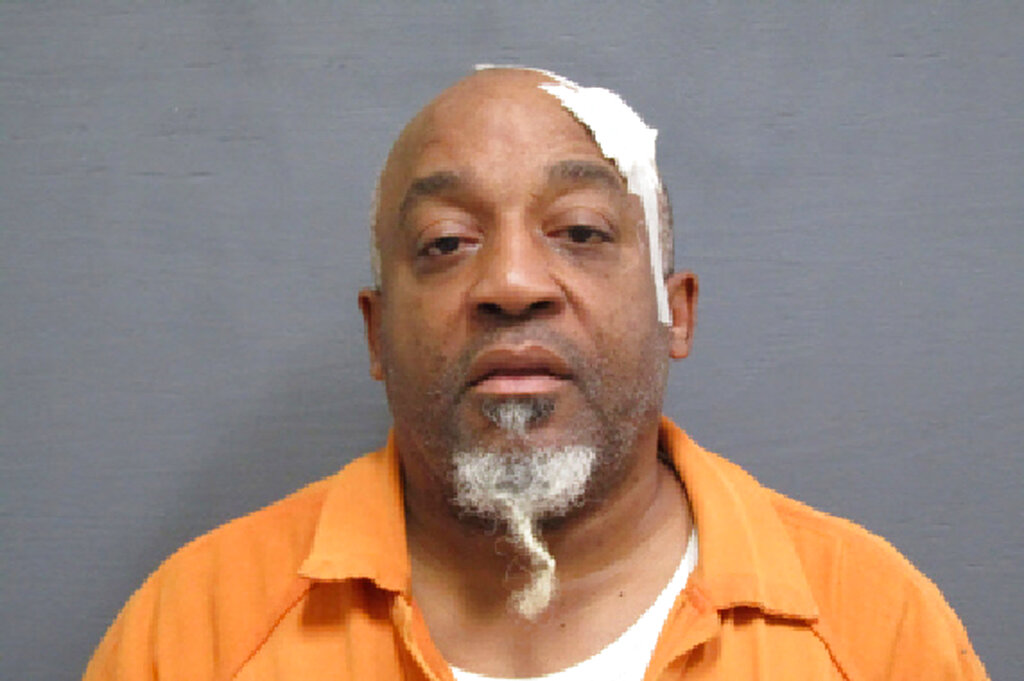
He is the half-brother of activist Al Sharpton.
From toast of town to toxic: Mark Zuckerberg on outs with democrats
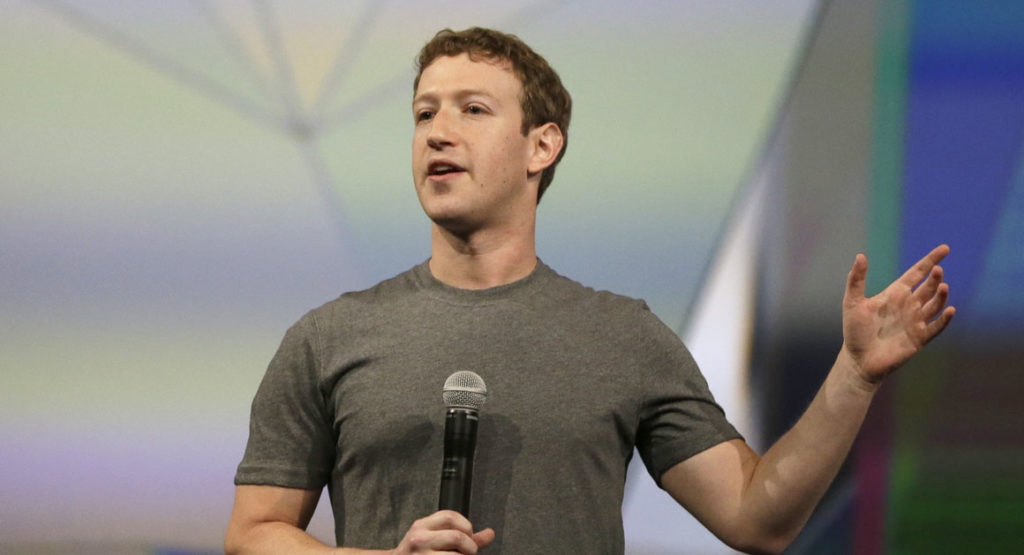
Mark Zuckerberg’s social network in Washington is shrinking. Bipartisan hostility against Facebook has been building for months, fueled by a series of privacy scandals, the site’s role in Russian meddling in the 2016 presidential campaign and accusations that Facebook crushes competitors. Now, with the 2020 elections approaching, Democrats especially are homing in on the conduct of the social media giant and its refusal to fact-check political ads and remove false ones. “When you’re the No. 1 monopoly, people are going to come after you,” says John Feehery, a veteran Republican communications strategist. The challenge for Democrats, as he sees it: “They’re facing a base that is very angry and restive. So they have to be much more aggressive in taking on corporations.” Zuckerberg enjoyed a cozy relationship with the Obama administration. But in the face of growing public outrage, the co-founder of the upstart born under the motto “Move fast and break things” is learning the art of smoothing over and piecing back together. His new strategy: a personal blitz featuring serial private meetings in Washington with key lawmakers of both parties and President Donald Trump; small, off-the-record dinners at his California home with conservative journalists and opinion makers; and the occasional public address or TV interview. Addressing criticisms from Democratic lawmakers and civil rights groups over Facebook’s track record on fighting discrimination, Zuckerberg and Chief Operating Officer Sheryl Sandberg planned to host a dinner Monday night with civil rights leaders. The two executives want to hear the leaders’ “direct perspective and feedback,” the company said. The Rev. Al Sharpton said last week that Zuckerberg would meet with him and others to discuss concerns such as Facebook’s handling of political messages. Misinformation on the platform can contribute to the suppression of voting by African Americans and other minorities, civil rights leaders say. Zuckerberg has become lobbyist-in-chief for a tech giant that has about 60 people officially playing that role. The company spent an estimated $12.6 million on federal influencing last year. The political ad issue hits close to home for Democrats. Facebook, as well as Twitter and Google, refused in September to remove a misleading video ad from Trump’s reelection campaign that targeted top-tier Democratic candidate Joe Biden. Sen. Elizabeth Warren, another top Democratic contender, chose to hit back by running her own ad and making it personal by falsely claiming that Zuckerberg had endorsed Trump for 2020. Warren, who has called for breaking up Facebook and other tech giants, acknowledged the ad’s deliberate falsity to make her point. Then came Zuckerberg’s speech last month at Georgetown University in which he promoted free expression as the foundation for Facebook’s refusal to take down content it deems newsworthy, even if the material violates company standards. The next week, during prickly questioning by Democratic lawmakers at a televised House hearing, Zuckerberg dug in on not fact-checking politicians’ speech and the handling of hate speech and potential incitements to violence. “This really is not about money,” Zuckerberg insisted. “It is important that people can see for themselves what politicians are saying.” Facebook says political advertising accounts for less than half of 1 percent of its total revenue. Separately from political advertising, Facebook has policies and improved technology that it says now enables it to more efficiently detect terrorist content in many languages. Following the mass shooting in New Zealand last spring, for example, Facebook now prohibits livestreaming by people who have violated rules covering organizations and individuals deemed dangerous and potentially violent. In the lambasting from Democrats, Rep. Joyce Beatty of Ohio, the vice chair of the Congressional Black Caucus, focused on Facebook’s track record on civil rights and diversity. She told Zuckerberg that he had “ruined the lives of many people, discriminated against them.” As part of a legal settlement with civil rights groups, Facebook changed its ad-targeting systems this year to prevent discrimination in housing, credit and employment ads. It previously had allowed such ads to be targeted to people based on age, sex or race, which is illegal. At some points, friendlier Republican members of the House Financial Services Committee asked Zuckerberg how he was holding up through the six-hour hearing. “I’m doing OK,” replied the 35-year-old co-founder, chairman and CEO. He’s one of the world’s richest individuals, with a net worth currently estimated at $71 billion. Summing up, Rep. Maxine Waters, the California Democrat who leads the committee, told Zuckerberg, “You have opened up a discussion about whether Facebook should be broken up.” A mandated breakup would be the worst-case scenario for Facebook and the other big tech companies. Facebook says splitting up large tech corporations would make the election system more vulnerable to interference because the companies wouldn’t be able to work together to prevent it. For Zuckerberg and the Democrats, “it may be a nasty divorce,” said James Thurber, a professor of government at American University who founded its Center for Congressional and Presidential Studies. “He clearly has taken a stand that’s really quite unpopular.” Thurber called Zuckerberg’s backstage celebrity approach to lobbying efforts “very dangerous.” “You’ve got to be very careful about that, if you think you can do it yourself,” he said. Rep. David Cicilline, a senior House Democrat who leads the Judiciary Committee’s investigation into the market dominance of big tech companies, is working on legislation that may target the profits made by Facebook from political ads it knows are false. The measure likely would also apply to social media rivals Twitter and Google. Last Wednesday, Twitter made the unexpected announcement that it will ban all political advertising from its service. “This is a good first step,” Cicilline tweeted. “Your move, Google/Facebook.” Zuckerberg’s quick riposte, during Facebook’s quarterly conference call on earnings, was to reaffirm the company’s commitment to the value of free speech, including for politicians. It’s a sharp reversal of fortune for Facebook from the days of the Obama administration, when the company was hailed as an exemplar of innovation and an engine of economic growth. Campaign money flowed to the
Sharpton holds town hall on black woman’s restaurant arrest
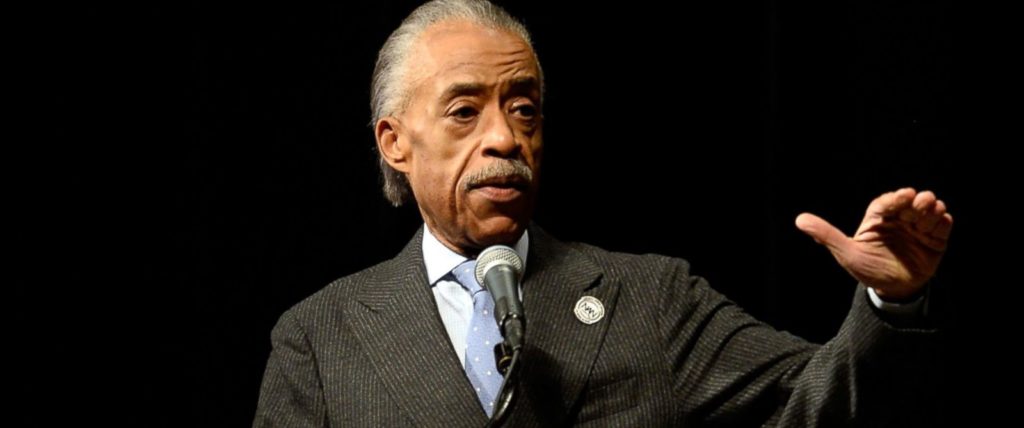
Rev. Al Sharpton attended a town hall in Alabama to show support for a black woman whose contentious arrest at a Waffle House sparked anger when the video went viral online. WALA-TV reports hundreds attended the meeting at Bethel AME church in Mobile, Alabama, to show support for Chikesia Clemons. Police in Saraland, Alabama, say Clemons was drunk and disorderly when they arrested her April 22. They say she and a friend cursed employees and threatened to return with guns. Sharpton had questions about the Saraland police officers’ actions, body cameras and sound from the surveillance video they released. He also demanded Clemons’ charges be dropped and for Waffle House to admit she was treated improperly. Several others spoke including Civil Rights Attorney Ben Crump who’s representing the Clemons family. Republished with the permission of the Associated Press.


